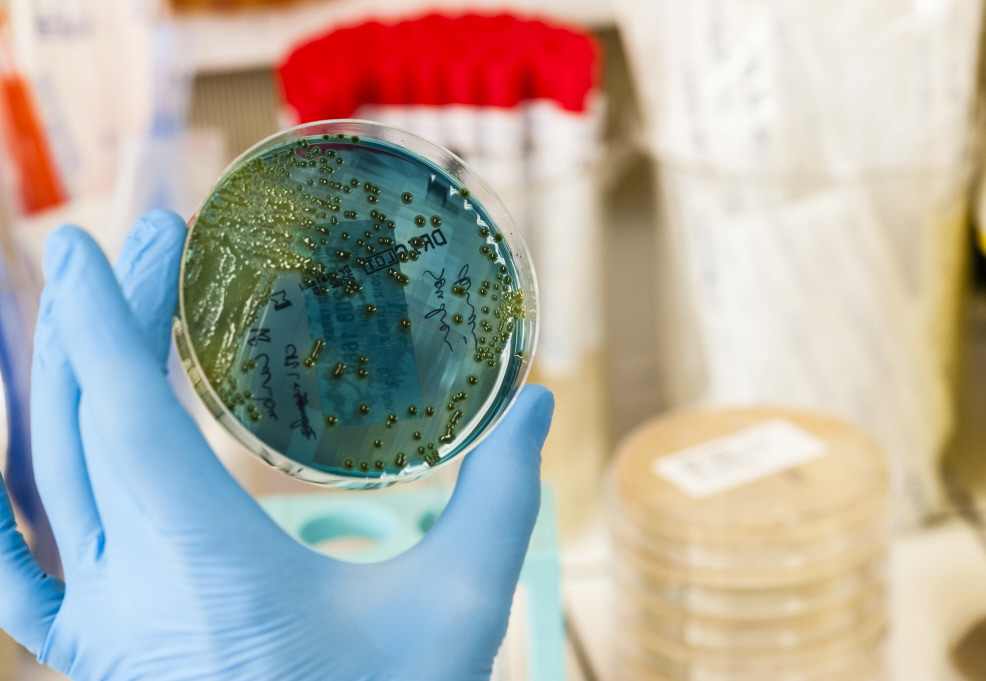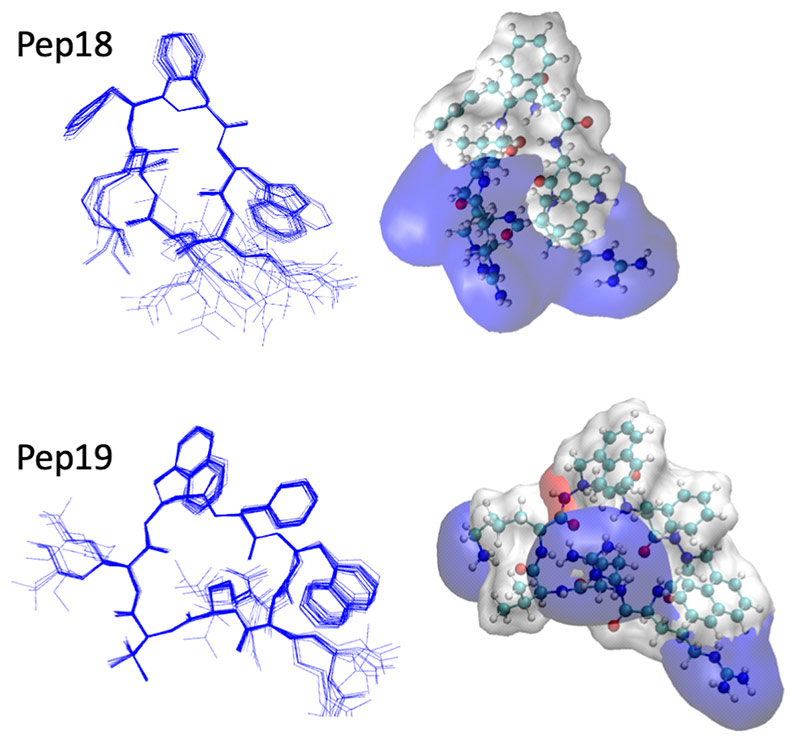
11th July 2019 Two new antibiotics are effective against resistance The discovery of a new molecule and subsequent creation of two entirely new antibiotics could help in the fight against antimicrobial resistance.
Antibiotics have saved so many lives over the past century that they are considered one of the biggest breakthroughs in contemporary medicine. Unfortunately, growing resistance is now gradually rendering them ineffective. A threat of catastrophic public health consequences looms on the horizon, should this trend continue much longer. The few new antibiotics being brought to market essentially consist of so-called "me-too" drugs – meaning that they are derived from existing classes. This week, French scientists report the creation of two entirely new antibiotics, which could bring fresh impetus and new possibilities to fighting the problem of antibiotic resistance. The team, from the French National Institute of Health and Medical Research (Inserm) and Université de Rennes 1, worked alongside the Rennes Institute of Chemical Sciences (ISCR). Not only are they effective against Gram-positive and negative multi-resistant bacteria, they also appear not to trigger resistance when used to treat infection in mouse models. “It all started with a fundamental discovery made in 2011,” explains Brice Felden, Director of the Bacterial Regulatory RNAs and Medicine laboratory in Rennes. “We realised that a toxin produced by Staphylococcus aureus – whose role is to facilitate infection – is also capable of killing other bacteria present in our body. What we had identified was a molecule with dual toxic and antibiotic properties. We thought that if we could separate these activities, we would be able to create a new antibiotic, non-toxic to the body. A challenge that we accepted!”
Credit: Irène Nicolas, et al. / PLOS Biology
A new family of so-called peptidomimetics was synthesised. As their name suggests, these peptides are inspired by the existing natural bacterial peptides but have been shortened and modified. Out of the 20 molecules created, two proved effective against resistant Staphylococcus aureus and Pseudomonas aeruginosa in mice with severe sepsis or skin infection. In addition, no toxicity to the other cells and organs, whether in animals or human cells was observed. These new compounds are well tolerated at their active doses – and even beyond – and are devoid of the renal toxicity issues often encountered with this type of compound. “We tested them at doses 10 to 50 times higher than the effective dose without seeing toxicity” explains Felden, adding that “the participation and imagination of the team and our chemist colleagues was needed to devise the most active molecules possible.” Importantly, the bacteria left in contact for several days in the animals with these antibiotics showed no signs of resistance. In order to go further, the researchers created conditions favourable to the development of resistance in vitro and in vivo – still nothing happened. The antibacterial activity of these peptidomimetics was partially due to the capacity of non-natural amino acids to reinforce the association of these compounds with membranes of the infectious bacteria, a strong binding that leads to membrane permeability and death of the bacteria. “We think these new molecules represent promising candidates for the development of new antibiotics that can provide alternative treatments to antimicrobial resistance,” says Felden. The next step involves launching Phase I clinical trials in humans. A patent has been licensed and a start-up created. The research appears this week in the peer-reviewed journal, PLOS Biology.
Comments »
If you enjoyed this article, please consider sharing it:
|








